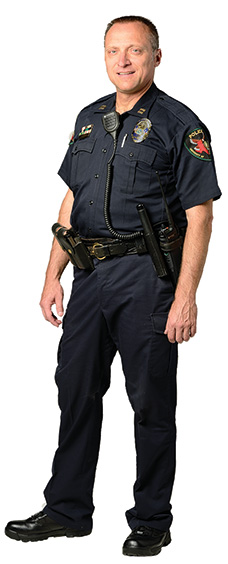June 7, 2013
 How can you prepare for a public disaster or emergency?
How can you prepare for a public disaster or emergency?
The most common mistake — and worst response — in a disaster is to panic, says Capt. Jim Coffey ('93) with UNT's Police Department. Coffey has more than 25 years of experience teaching groups how to remain calm and save lives in the event of public disasters or emergencies, which are becoming increasingly more common across the U.S.
He says panic causes unclear thinking and the inability for people to see escape options when faced with danger. They often react inappropriately and make "non-life-saving reactions" in high-stakes situations.
"When you panic, you are less likely to be able to think clearly and effectively," Coffey says. "You are more likely to pick up on natural warning signs and cues when you are aware and paying attention to your surroundings."
Coffey offers the following tips to increase your chances of survival in the event of a public disaster by thinking clearly and choosing lifesaving responses.
Be aware
- Keep your head up when walking in public. Do not text or do anything that would cause you to be unaware of your immediate surroundings.
- Stay alert and aware.
- Note things out of the ordinary.
Trust your instincts
- Do not suppress or ignore feelings of fear. They can be used to your advantage. Gavin DeBecker's book, The Gift of Fear, is an excellent resource on self-protection and reducing risk in everyday life.
- Be willing to change your plans if something appears wrong or you get a bad feeling.
- Trust your instincts if someone around you acts suspiciously. Notify authorities.
Take action
- Have a plan. Be conscious of escape routes and areas that provide shelter and concealment.
- Do not overload your arms with packages or sacks when walking to your car. Use a cart when possible.
- Consider changing your route or walking in a different direction to avoid potentially dangerous situations.